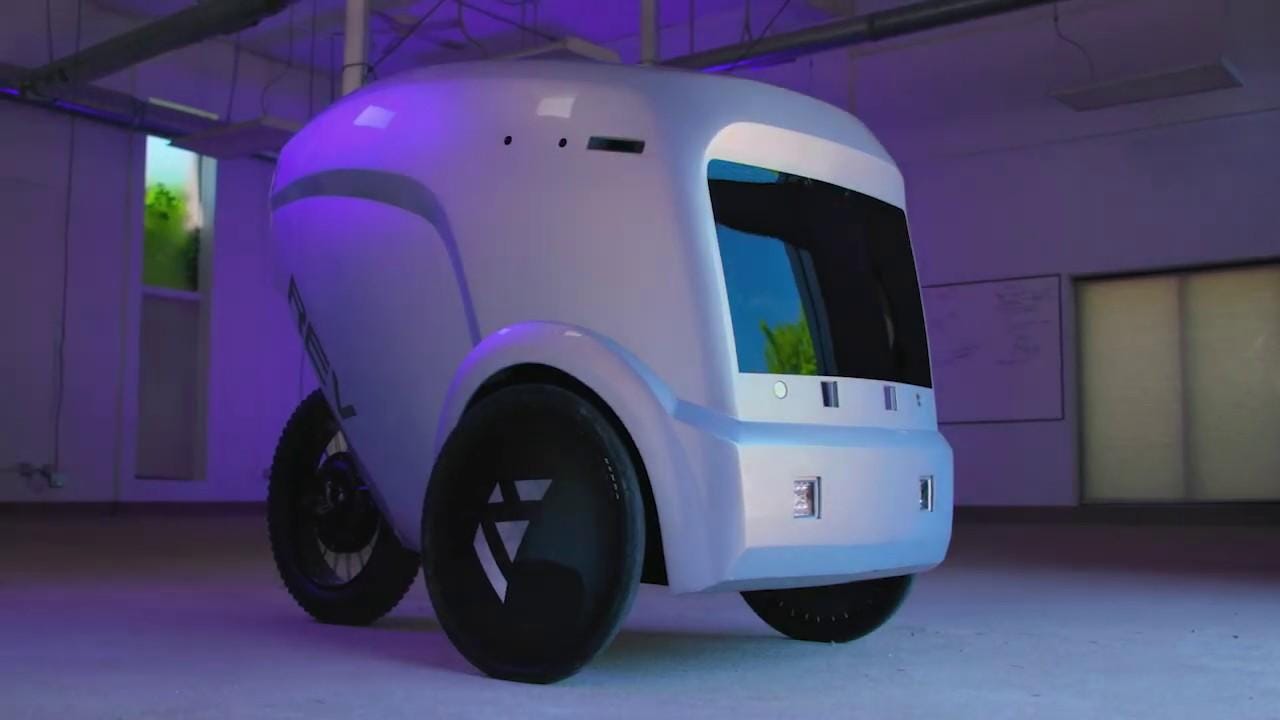The last mile: Robots take to streets for local delivery


A company that makes an innovative robot that may one day challenge Amazon drivers for their urban deliveries, is newly buoyed by a seed round announced this week. Refraction AI, an automation firm founded in 2019 and creator of the REV-1, a low-cost, lightweight autonomous delivery robot, will use its $4.2 million raise for customer acquisition, geographic expansion, and product development.
Last mile logistics, the challenge of getting goods from smaller distribution hubs, often based on the fringes of cities, to final delivery destinations, is the achilles heel of speedy logistics. Amazon has moved heaven and earth, first via USPS and now with a fleet of its own delivery trucks and drivers, to ensure speedy last-mile delivery.
The reason that last mile logistics is such a headache for logistics companies is because it's where large, efficient shipments become individual logistical challenges fraught with unique handling requirements, finicky directions, and uncertain coordination with customers. But it also has a key advantage: the last mile—a term of art that just means the last local leg of a delivery—occurs over short distances from a static distribution base, making it an exciting use case for automation.
"Last-mile delivery is the quintessential example of a sector that is ripe for innovation, owing to a powerful confluence of advancing technology, demographics, social values and consumer models. Conventional approaches have left businesses and consumers with few choices in this new environment as they struggle to keep pace with surging demand - burdened by the costs, regulatory, and logistical challenges of a legacy infrastructure," says Luke Schneider, who took the helm as CEO of Refraction AI in fall 2020. "Our platform uses technology that exists today in an innovative way, to get people the things they need, when they need them, where they live. And we're doing so in a way that reduces business' costs, makes roads less congested, and eliminates carbon emissions."
Enter the last mile delivery robots. A fleet of delivery robots that coordinate delivery with customers via an integrated app and return to base when done could upend the logistics sector while freeing up increasingly congested road space. According to an Allied Market Research Report on Global Autonomous Last-Mile Delivery, compound annual growth in the last-mile delivery sector over the next 10 years could exceed 14 percent, with the autonomous delivery segment projected to grow at over 24 percent from $11.9 billion in 2021 to more than $84 billion globally by 2031.
REV-1 is one example of a last-mile delivery robot. It's small, allowing the robot to operate in both the bike lane and on roads, which increases route flexibility and safety. The company was founded by roboticists and professors at the University of Michigan and like other autonomous mobile robotics firms its first application was with restaurant and grocery partners. But in the age of online shopping, logistics is the bigger growth opportunity. The company expects to expand across the gamut of last-mile delivery.
"With a tremendous potential to impact the future of last-mile goods delivery, Refraction AI is incredibly well-positioned because their solution is up and running today," says Jamie Goldstein, founder and partner of Pillar VC, which led the seed round. "We believe Refraction AI will create the de facto standard for this rapidly-expanding category; the combination of technology, momentum and leadership makes the company poised to break down barriers to AV for any business, which in turn increases access to goods for households that need them."